Sudarshan Nandy
Training a Feed-forward Neural Network with Artificial Bee Colony Based Backpropagation Method
Sep 12, 2012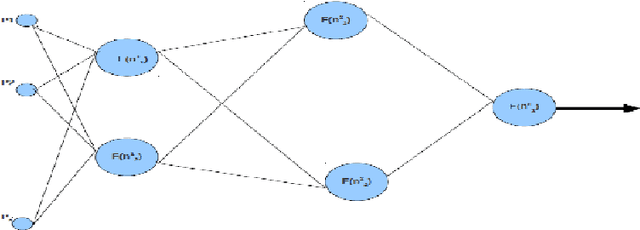
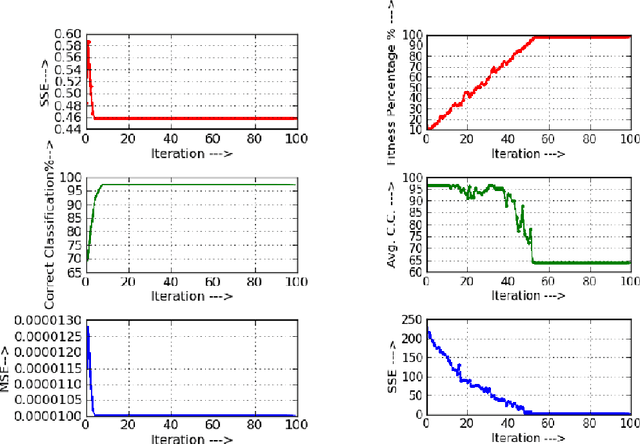
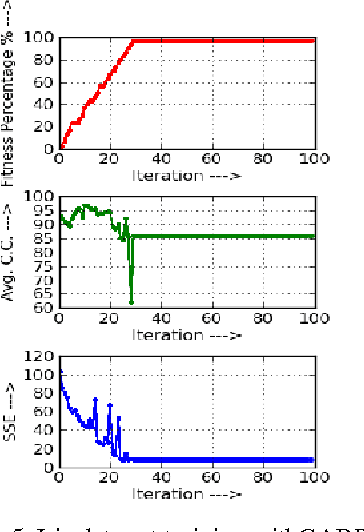
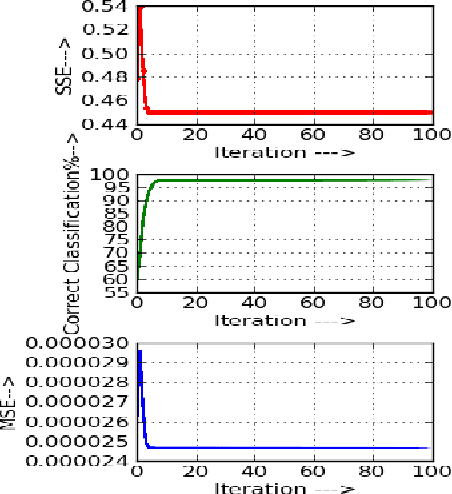
Abstract:Back-propagation algorithm is one of the most widely used and popular techniques to optimize the feed forward neural network training. Nature inspired meta-heuristic algorithms also provide derivative-free solution to optimize complex problem. Artificial bee colony algorithm is a nature inspired meta-heuristic algorithm, mimicking the foraging or food source searching behaviour of bees in a bee colony and this algorithm is implemented in several applications for an improved optimized outcome. The proposed method in this paper includes an improved artificial bee colony algorithm based back-propagation neural network training method for fast and improved convergence rate of the hybrid neural network learning method. The result is analysed with the genetic algorithm based back-propagation method, and it is another hybridized procedure of its kind. Analysis is performed over standard data sets, reflecting the light of efficiency of proposed method in terms of convergence speed and rate.
* 14 Pages, 11 figures
Analysis of a Statistical Hypothesis Based Learning Mechanism for Faster crawling
Aug 14, 2012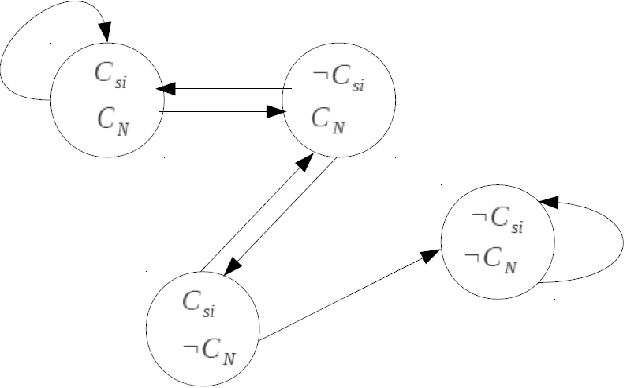
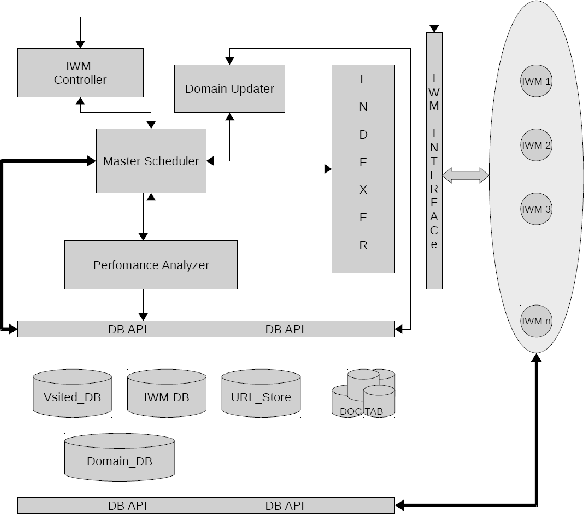
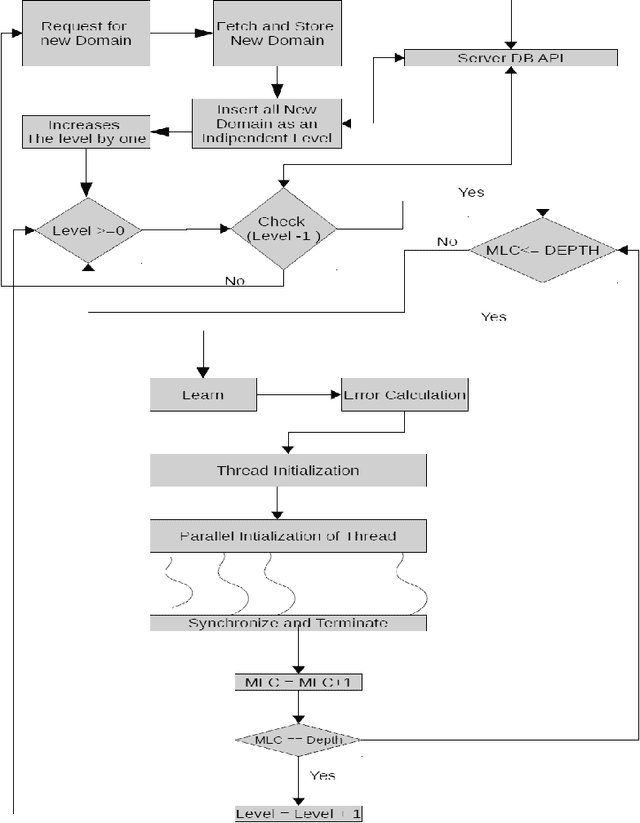
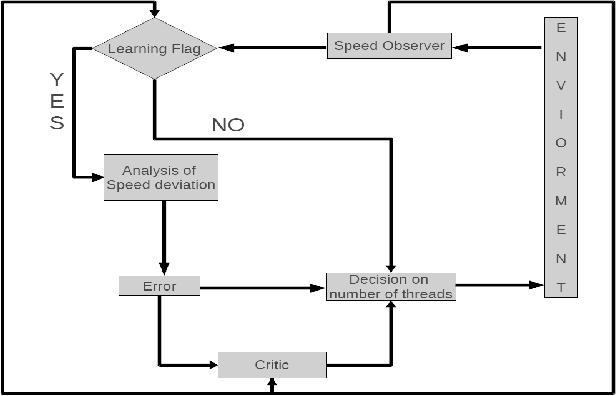
Abstract:The growth of world-wide-web (WWW) spreads its wings from an intangible quantities of web-pages to a gigantic hub of web information which gradually increases the complexity of crawling process in a search engine. A search engine handles a lot of queries from various parts of this world, and the answers of it solely depend on the knowledge that it gathers by means of crawling. The information sharing becomes a most common habit of the society, and it is done by means of publishing structured, semi-structured and unstructured resources on the web. This social practice leads to an exponential growth of web-resource, and hence it became essential to crawl for continuous updating of web-knowledge and modification of several existing resources in any situation. In this paper one statistical hypothesis based learning mechanism is incorporated for learning the behavior of crawling speed in different environment of network, and for intelligently control of the speed of crawler. The scaling technique is used to compare the performance proposed method with the standard crawler. The high speed performance is observed after scaling, and the retrieval of relevant web-resource in such a high speed is analyzed.
* 14 Pages, 7 Figure
Analysis of Statistical Hypothesis based Learning Mechanism for Faster Crawling
Aug 13, 2012



Abstract:The growth of world-wide-web (WWW) spreads its wings from an intangible quantities of web-pages to a gigantic hub of web information which gradually increases the complexity of crawling process in a search engine. A search engine handles a lot of queries from various parts of this world, and the answers of it solely depend on the knowledge that it gathers by means of crawling. The information sharing becomes a most common habit of the society, and it is done by means of publishing structured, semi-structured and unstructured resources on the web. This social practice leads to an exponential growth of web-resource, and hence it became essential to crawl for continuous updating of web-knowledge and modification of several existing resources in any situation. In this paper one statistical hypothesis based learning mechanism is incorporated for learning the behavior of crawling speed in different environment of network, and for intelligently control of the speed of crawler. The scaling technique is used to compare the performance proposed method with the standard crawler. The high speed performance is observed after scaling, and the retrieval of relevant web-resource in such a high speed is analyzed.
* 14 Pages, 7 Figures This paper has been withdrawn by the author due to a crucial sign error in page no. 3,4,7 and 11. The error is also observed with equation no in page 10
Analysis of a Nature Inspired Firefly Algorithm based Back-propagation Neural Network Training
Jun 23, 2012Abstract:Optimization algorithms are normally influenced by meta-heuristic approach. In recent years several hybrid methods for optimization are developed to find out a better solution. The proposed work using meta-heuristic Nature Inspired algorithm is applied with back-propagation method to train a feed-forward neural network. Firefly algorithm is a nature inspired meta-heuristic algorithm, and it is incorporated into back-propagation algorithm to achieve fast and improved convergence rate in training feed-forward neural network. The proposed technique is tested over some standard data set. It is found that proposed method produces an improved convergence within very few iteration. This performance is also analyzed and compared to genetic algorithm based back-propagation. It is observed that proposed method consumes less time to converge and providing improved convergence rate with minimum feed-forward neural network design.
* 9 pages, 10 figures, Published with International Journal of Computer Applications (IJCA)
An Improved Gauss-Newtons Method based Back-propagation Algorithm for Fast Convergence
Jun 19, 2012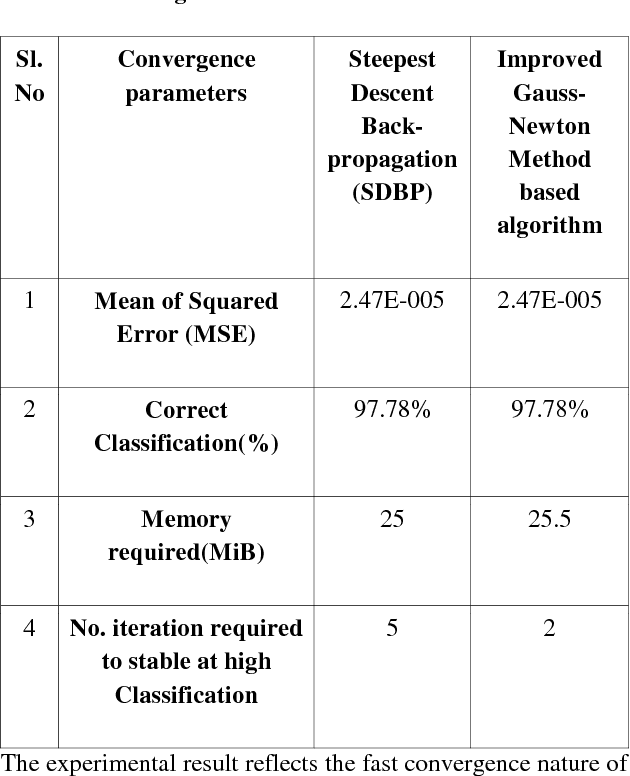
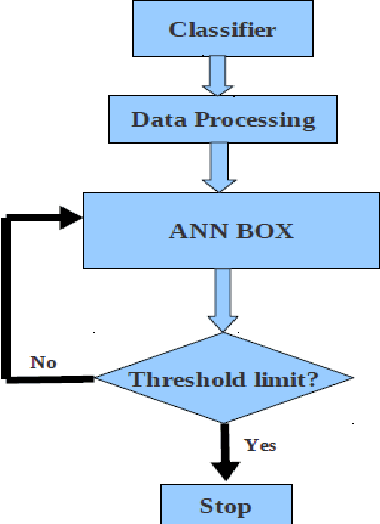
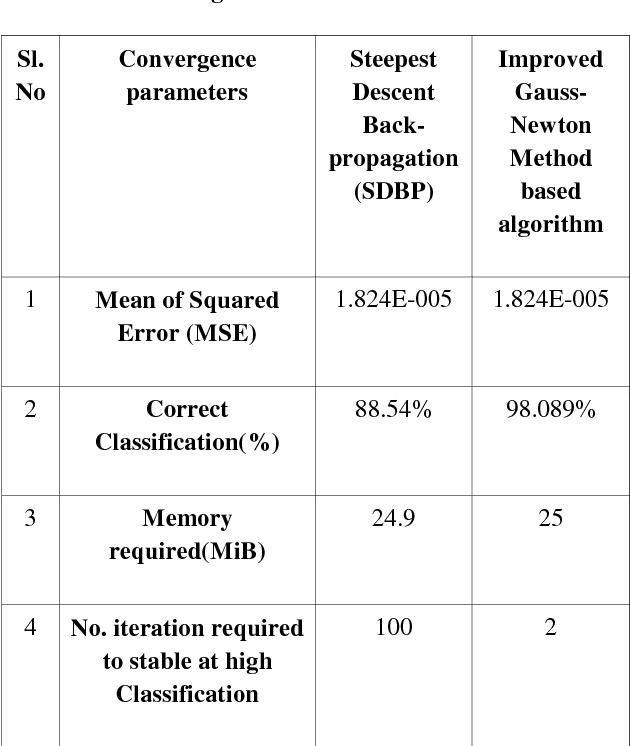

Abstract:The present work deals with an improved back-propagation algorithm based on Gauss-Newton numerical optimization method for fast convergence. The steepest descent method is used for the back-propagation. The algorithm is tested using various datasets and compared with the steepest descent back-propagation algorithm. In the system, optimization is carried out using multilayer neural network. The efficacy of the proposed method is observed during the training period as it converges quickly for the dataset used in test. The requirement of memory for computing the steps of algorithm is also analyzed.
* 7 pages, 6 figures,2 tables, Published with International Journal of Computer Applications (IJCA)
 Add to Chrome
Add to Chrome Add to Firefox
Add to Firefox Add to Edge
Add to Edge